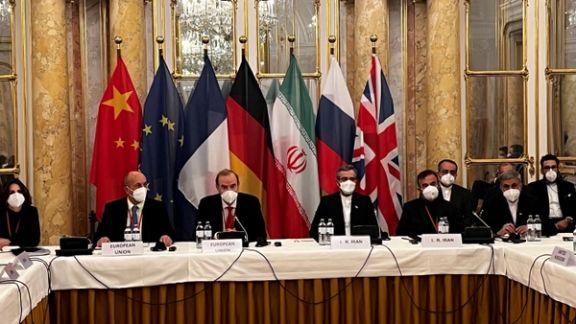Iran Nuclear Talks Resume With More Questions Than Answers

United States and Iranian officials played down prospects as they headed to Vienna for the resumption of nuclear talks on Thursday.

United States and Iranian officials played down prospects as they headed to Vienna for the resumption of nuclear talks on Thursday.
“Our expectations are in check, but the United States welcomes EU [European Union] efforts and is prepared for a good faith attempt to reach a deal,” Rob Malley, the US special envoy for Iran and lead nuclear negotiator, wrote on Twitter. “It will shortly be clear if Iran is prepared for the same.”
“[Iranian negotiator Ali] Bagheri Kani will leave Tehran in a few hours,” said Iran’s foreign ministry spokesman Nasser Kanaani in Tehran. “In this round of talks, which will be held as usual with the co-ordination of the European Union, ideas presented by different sides will be discussed.”
The talks are expected to focus on a written text submitted July 20 by Joseph Borrell, the EU foreign policy chief. The resumption of talks aimed at restoring the 2015 Iran nuclear deal, the JCPOA (Joint Comprehensive Plan of Action) was announced earlier Wednesday by Enrique Mora, the senior EU official who coordinated year-long Vienna meetings between Iran and six world powers, which paused in March.
‘Ominous legacy’
“Heading to Vienna to advance the negotiations,” Bagheri Kani tweeted. “The onus is on those who breached the deal & have failed to distance from ominous legacy…The US must seize the opportunity offered by the JCPOA partners’ generosity; ball is in their court to show maturity & act responsibly.”
But on August 1 Iran said it started feeding fuel into “hundreds” more IR-1 & IR-6 centrifuges – devices used to enrich uranium – as part of a plan for a capacity of at least 190,000 SWU (separative work units), a measurement of efficiency in enrichment. Under the JCPOA Iran was allowed only 6,104 of the less advanced 6,104 and no IR-6s.
It is as unclear whether the resumed talks will resume the Vienna set-up – with formal, direct talks involving Iran, China, France, Germany, Russia and the United Kingdom; and with the US participating indirectly.
Reuters quoted one un-named Iranian official that the talks would be “in the format of the Doha meeting,” referring to June’s two-day indirect bilateral US-Iran talks in the Qatari capital, when the US and Iran conferred through EU mediator. Tehran has ruled out face-to-face meetings.
Russia ‘ready for talks’
Mikhail Ulyanov, Russia’s envoy to the Vienna-based International Atomic Energy Agency (IAEA), suggested in a tweet that the talks were restoring the Vienna process “after a break” of five months with Russian negotiators were “ready for constructive talks in order to finalise [sic] the agreement.”
Both the Vienna talks and the Doha round failed to bridge gaps between the US and Iran over which American sanctions violate the JCPOA and should be lifted for Iran to downsize its nuclear program to JCPOA limits. The US left the JCPOA in 2018, imposing ‘maximum pressure’ sanctions and prompting Iran by 2019 to begin expanding its atomic work and to reduce IAEA monitoring to that is required under the Nuclear Non-Proliferation Treaty.
With the US and Iran blaming each other for lack of agreement over renewing the JCPOA, Iran’s nuclear chief Mohammad Eslami said Wednesday that Tehran saw no reason to accept any of the deal’s limits. The US Treasury has also in recent days announced further action, under ‘maximum pressure’ powers introduced by President Donald Trump, to sanction companies from China, the Emirates and Singapore it said were involved in exporting Iranian petrochemicals.